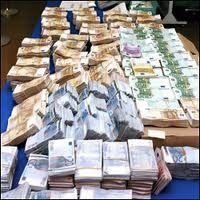Financial secrecy ‘no accident’
The Financial Secrecy Index, published by the Tax Justice Network, rates countries on their laws regarding the transparency of ownership structures, bank secrecy rules, financial reporting and disclosure requirements.

01 Feb 2018, 09:00
Financial secrecy is no accident, a research and advocacy group has said, after the Maldives ranked as one of the most secretive jurisdictions in the world.
The Financial Secrecy Index, published by the Tax Justice Network, rates countries on their laws regarding the transparency of ownership structures, bank secrecy rules, financial reporting and disclosure requirements.
The Maldives, despite its size, ranked 94th. It was 79th in 2013 and 61st in 2011.
“The 2018 index is not directly comparable with 2013 and 2011, because as international standards have developed, the tests in the FSI have become much more demanding,” said a TJN spokesman. “What we can say though is that the Maldives has not demonstrated progress in opening up its financial system.”
Become a member
Get full access to our archive and personalise your experience.
Already a member?
Discussion
No comments yet. Be the first to share your thoughts!
No comments yet. Be the first to join the conversation!
Join the Conversation
Sign in to share your thoughts under an alias and take part in the discussion. Independent journalism thrives on open, respectful debate — your voice matters.




